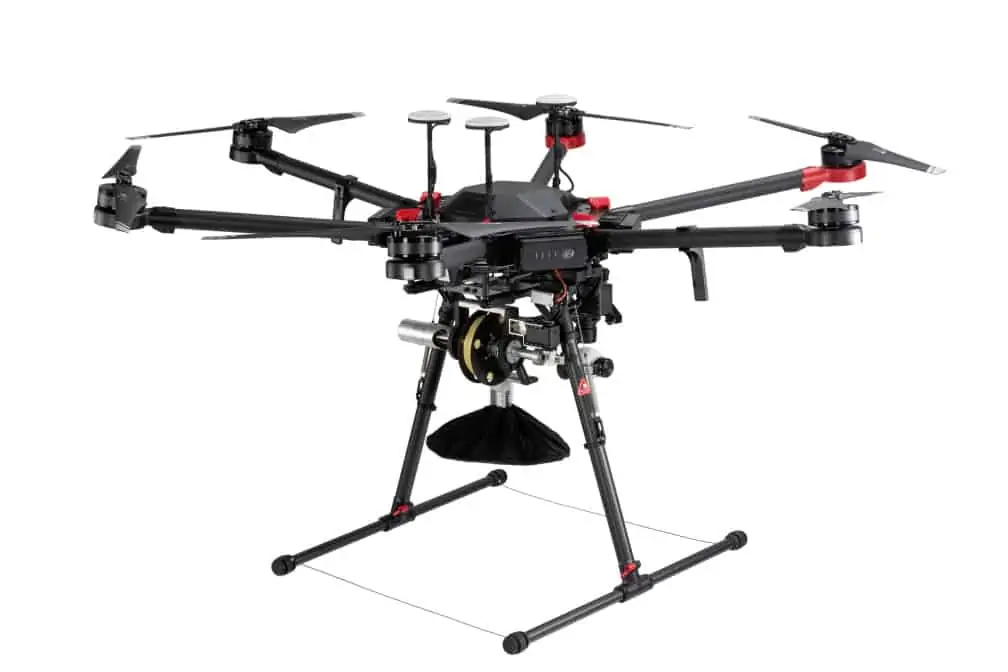
A2Z Drone Delivery has recently completed the first commercial deployment of its RDS1 (Rapid Delivery System) tethered freefall drone delivery mechanism on UAV’s (unmanned aerial vehicles) operated by drone services provider DroneUp. The RDS1 was selected for its rapid delivery capabilities, which reduced time-on-station to just 30 seconds per delivery, while minimizing rotor noise and limiting risk to people on the ground.
By delivering payloads while remaining at cruising altitude, the A2Z Drone Delivery RDS1 mitigates the safety and privacy concerns often associated with drone delivery, keeping spinning propellers away from people and lessening the impact of intrusive rotor noise. Seizing on these unique capabilities, DroneUp worked with the A2Z development team to customize the RDS1 controls into its proprietary flight software.
As drone delivery continues to expand, safety will continue to be a point of emphasis as fully-autonomous delivery becomes a reality. To ensure payloads are secure throughout the flight, the RDS1 features extensive integrated safeguards. An automated pre-flight weight check ensures the flight platform is not overloaded, before the RDS1’s built-in payload status detection tracks the payload throughout flight and delivery. Manual delivery control is backed up by intelligent safeguards that calculate the payload freefall and when to slow the descent to the ground, while a passive payload lock protects against package loss in the event of a power fluctuation. Should the UAV experience an emergency, the payload and tether can be abandoned to save the aircraft, and protect the safety of people and property on the ground.
Aaron Zhang, founder of A2Z Drone Delivery, commented: “For our partners at DroneUp to put their trust in our system was the best proof of concept that we could imagine and was a memorable benchmark for our whole team. The unique capabilities of the RDS1 were tailor-made for this type of residential delivery where our tethered freefall mechanism can accurately and quickly deposit payloads while hovering far from people, homes, trees and utility wires.”
John Vernon, CTO of DroneUp, said: “With the innumerable logistics that go into residential drone delivery, it’s important to have confidence in every aspect of the hardware from the UAV platform to the delivery mechanism,” said . “The RDS1 allows our pilots to reduce time-on-station to about 30 seconds per delivery. Combined with the ability to make deliveries from cruising altitude, this rapid delivery and the integrated safety features in the tether system itself, help us assuage some of the public concerns over UAV delivery.”
DroneUp pilot Ethan Burnette, who flew delivery missions with the RDS1, said: “No matter how many flight hours you have as a UAV pilot, adding the dynamic of delivering packages to the ground is still a new concept, so having the tether controls seamlessly integrated into the pilot software is imperative. Also, knowing the redundant safety systems are in place gives you the added peace of mind you need as you become accustomed to flying a drone with a payload slung below it.”


















